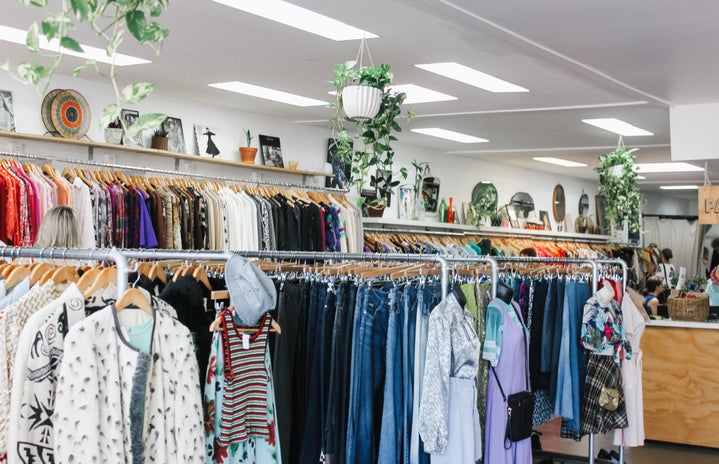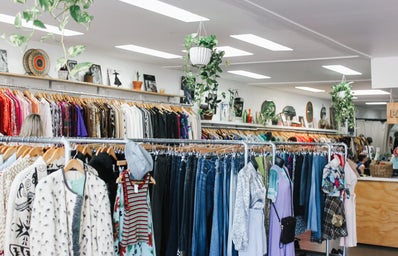Have you noticed some brands making an unexpected comeback this year? Is rebranding becoming the new marketing trend in 2024?
This year, numerous brands have taken the opportunity to reevaluate their branding and marketing strategies and there are marketing trends and campaigns to prove it. One thing is clear—competition is rising as newer brands are coming in hot with innovative ideas. Take Poppi and Olipop for example; they’ve quickly risen to become some of the most popular and successful beverage options, partially because of their innovative products and savvy branding. Positioned as fun and healthier alternatives to traditional sodas, they’re expected to compete with top brands like Coke and Pepsi.
So, established brands that were once popular but have faded over time are now rebranding to compete with these newer brands. Specifically, brands are looking to expand their reach to GenZ.
Why are brands targeting Gen Z?
Spending Power: Gen Z is becoming a key group of shoppers. By appealing to their preferences and lifestyles, brands can appeal to their wants and needs which are likely to stick with them as they age and their buying habits evolve.
Tech-Savvy: Growing up with technology, Gen Z is both comfortable and critical of the digital world. They expect brands to have a strong online presence and engage with them in relatable, innovative ways. Brands can capture Gen Z’s attention through interactive and visually appealing social media content, campaigns, personalized shopping experiences, and events.
Trends and Influence: Gen Z is most likely to follow and set trends, especially on social media like TikTok and Instagram. This generation is not just consumers; they are creators and influencers who shape what is popular. By engaging with trends and collaborating with influencers, brands can increase their visibility through the viral nature of social media, aligning themselves with Gen Z’s values, humor, and aesthetics.
Sustainability and Values: Gen Z is highly aware of social and environmental issues. Because they are future-focused and value positive change, they often favor brands that demonstrate a commitment to making a difference—brands are realizing that. By showcasing their dedication to these values, brands can foster trust and loyalty.
Brands coming back in 2024.
LEVI’S
Levi’s, with a 170-year legacy as the creator of the first blue jeans, has long represented durability and individuality through its iconic 501s. However, in the 1990s, the brand struggled to adapt to the growing popularity of baggy and distressed styles from newer competitors, leading to a significant decline in sales and a weakened brand identity. In the last decade, Levi’s has focused on rebranding and regaining traction, starting with the 2014 campaign “Live in Levi’s.” This ongoing campaign celebrated self-expression through denim. To mark its 10th anniversary this year, Levi’s launched “The Floor Is Yours” campaign, positioning the brand as the “unofficial uniform” for progress and movement—appealing to Gen Z’s values of authenticity and change. In this year’s marketing strategy, Levi’s has used nostalgia and personalization to connect with Gen Z by using short Instagram reels and TikToks that feature influencers, mostly artists and fashion designers, sharing their unique styles and personal stories with Levi’s jeans. They also introduced “Off the Cuff,” a blog dedicated to vintage upcycling, which offers inspiration for individuals to customize their own pair of 501s. Additionally, Levi’s launched an exciting Fall 2024 collection which is expected to do well considering seasonal fashion trends. There’s even more to celebrate this year: Levi’s capitalized on Beyoncé’s song “Levii’s Jeans,” featuring Post Malone, resulting in a nearly 20% boost in stock and a significant increase in-store traffic. By rebranding as “Levii’s,” the brand is reinforcing its commitment to remain authentic and relevant in Gen Z culture. Overall, these initiatives have greatly enhanced Levi’s innovation and branding within the fashion industry.
GAP INC.
Gap started as a retail pioneer, known for its jeans and casual wear, primarily targeting Millennials and Gen X. Despite challenges from online competitors and changing consumer preferences, Gap has shown resilience in remaining a leading fashion brand. A previous lack of relevance among younger consumers has ironically worked in its favor. Gap’s marketing strategy focuses on connecting with a diverse customer base across its brands, including Banana Republic, Old Navy, and Athleta. The company uses dynamic content optimization (DCO) to personalize ads based on real-time viewer data and collaborates with acclaimed photographers and influencers to create visually compelling advertisements. Partnerships like Kanye West’s Yeezy brand and endorsements from Emma Chamberlain back in 2020 have also reignited interest among younger consumers. The nostalgic appeal of Gap sweaters has been a highlight of the brand’s comeback. Back in 2021, the #GapHoodie received millions of views on TikTok, sparking conversations about the brand’s new coolness. In response to Gen Z’s affinity for nostalgia, the brand released limited-edition brown logo hoodies. This year, Gap is prepared to gain a moment of popularity like it did back in 2021 with its new Fall collection, “Get Loose,” which was released last month. The collection features Grammy-nominated Troye Sivan and celebrates Gap’s 55-year legacy in denim with a variety of relaxed styles. Overall, Gap’s core strength is offering classic, high-quality, and affordable pieces. With timeless clothing trending among Gen Z, the brand has the potential to further engage this demographic by leveraging trendsetting and TikTok endorsements to maintain their interest and build trust.
VICTORIA’S SECRET
Victoria’s Secret is a prime example of a brand that has embraced rebranding to refresh its image. After years of backlash for their lack of size diversity and a narrow model representation, the company has made strides to better support all women by launching maternity and nursing clothing and using size-inclusive and diversity-inclusive models. Seeking direct consumer feedback, Victoria’s Secret aims to strengthen its position as a leading retailer in intimate apparel and better serve the diverse fashion needs of women everywhere. In response to competitors like Aerie, which prioritize inclusivity in their marketing, Victoria’s Secret introduced the Love Cloud Collection, showcasing women from underrepresented groups. This campaign aims to redefine the brand’s image, although critics are questioning the brand’s authenticity. Looking ahead, 2024 is shaping up to be exciting with the return of Victoria’s Secret Fashion Show in New York after five years, generating buzz and potential for a strong comeback. To promote this event, they’re posting videos on their Instagram and TikTok featuring upcoming 2024 fashion show models, Tyra Banks and Gigi Hadid, along with celebrity endorsements from Sabrina Carpenter. Additionally, Victoria’s Secret has reintroduced VSX, a new athletic wear collection focused on style and versatility. With initiatives like the Love Cloud and VSX collection, along with the much-anticipated return of the Fashion Show—the brand is generating renewed interest and excitement that could potentially make all the difference in its comeback by the end of the year.
COACH
Coach, often associated with the vintage purses found in moms’ closets, has maintained a consistent image as a classic yet affordable brand. The brand’s main challenge was that its reputation for “affordable luxury” began to feel stale and overly familiar, even affecting its higher-priced collections. Now, Coach is becoming more popular than ever, particularly with the rise of “vintage Coach” bags among Gen Z. Searches for “vintage Coach” on eBay have surged by 114% since January, and bag hauls are going viral on TikTok, driven by the popularity of Y2K fashion. Popular Gen Z icons like Olivia Rodrigo, Bella Hadid, and Sabrina Carpenter, have posted photos on Instagram showcasing their stylish Coach bags. Coach anticipated this trend with its (Re)Loved program launched in 2021, allowing customers to trade in, repair, or buy pre-loved bags, aligning perfectly with the growing demand for vintage styles. To reshape its image and connect with Gen Z, Coach focused on understanding consumer perceptions, moving away from the idea of being a “mother’s brand.” The #coachbag and related tags have showcased the brand’s renewed popularity on social media. The Tabby bag—one of Coach’s new bags, inspired by a 1970s design, has become a standout icon. Coach continues to innovate with new styles that resonate with both long-time fans and Gen Z and regain popularity on their vintage bags.
2024 has been a standout year for iconic brands like Levi’s, Gap, Victoria’s Secret, and Coach as they embark on bold rebranding efforts to connect with Gen Z. By embracing innovation, nostalgia, inclusivity, and sustainability, they’re not just trying to stay relevant—they’re rebuilding loyalty among younger consumers. Their data-driven marketing strategy with the help of TikTok and influencers have been key in winning over Gen Z and reclaiming their spot in a competitive market.


